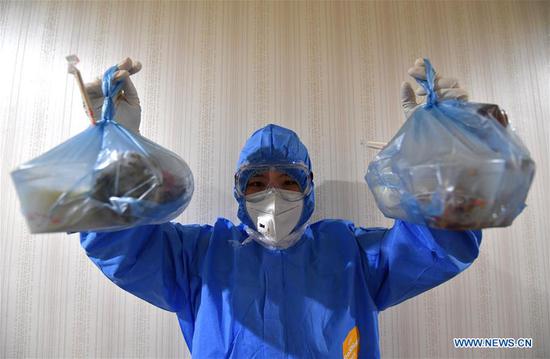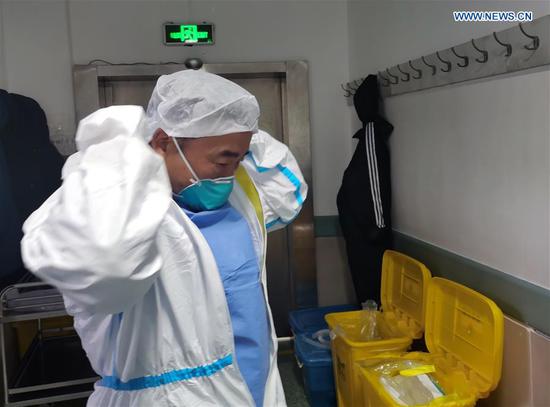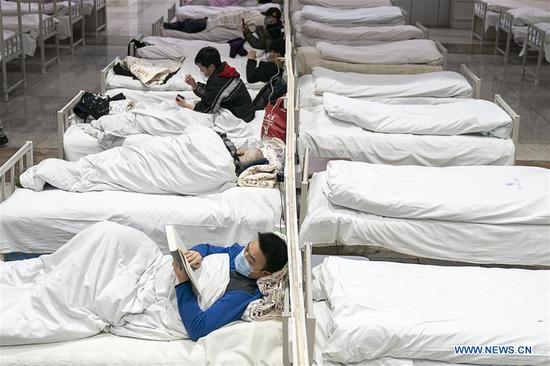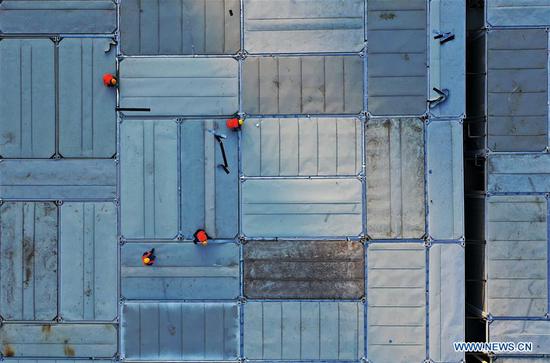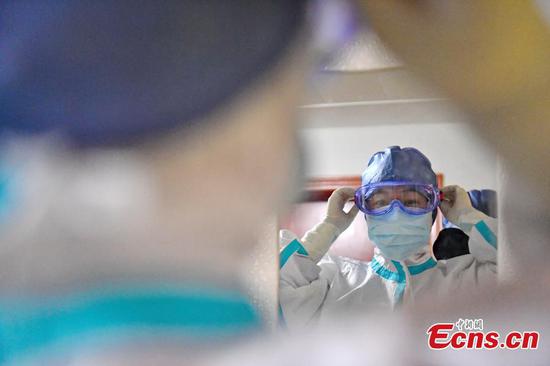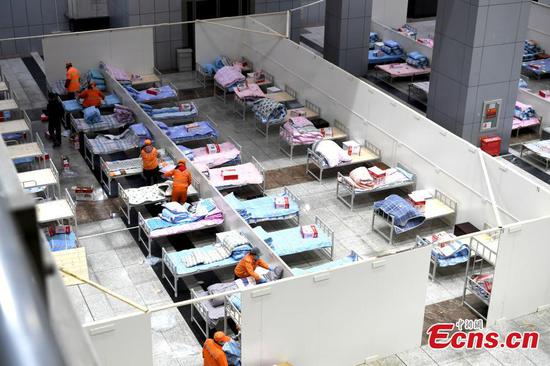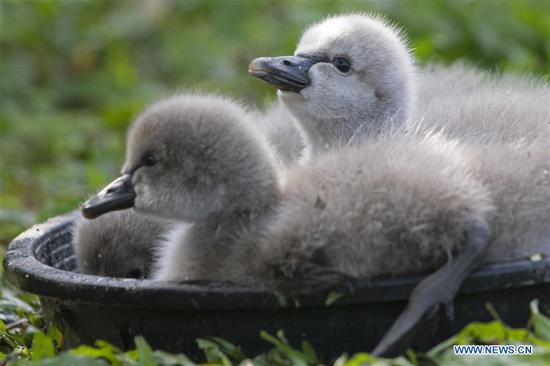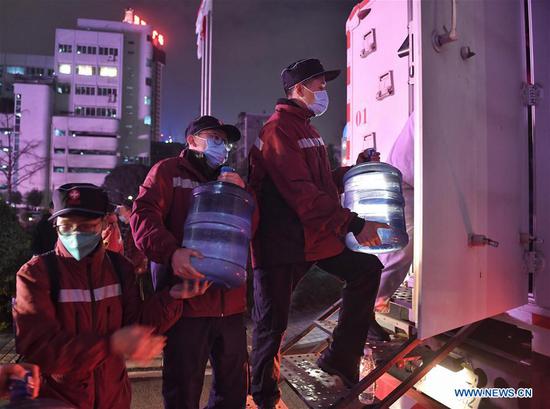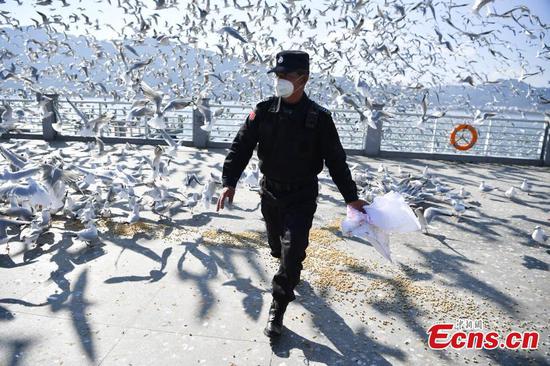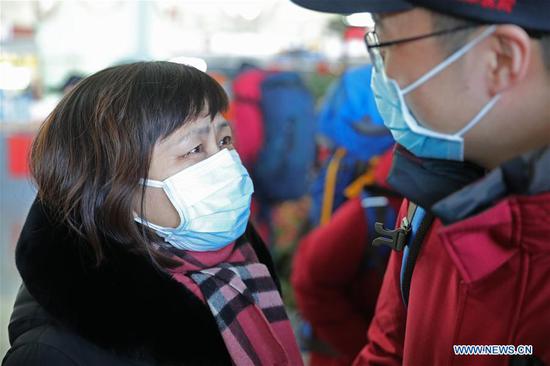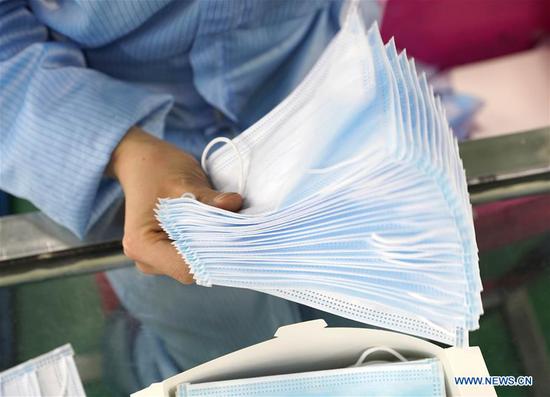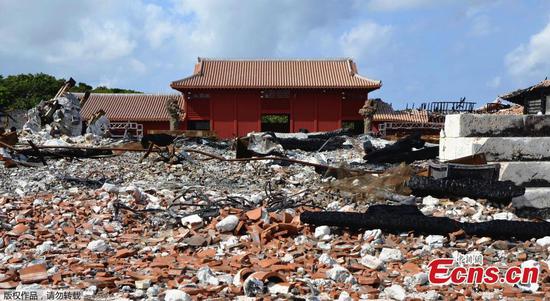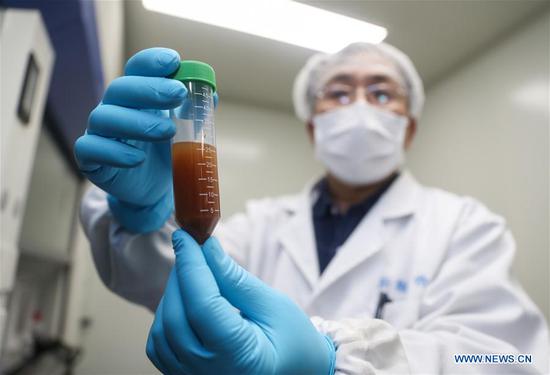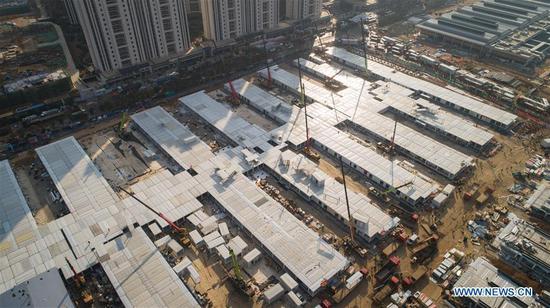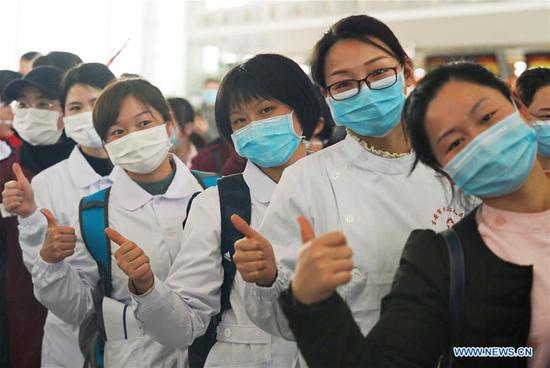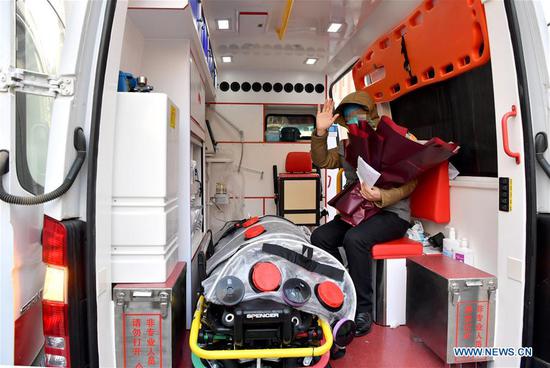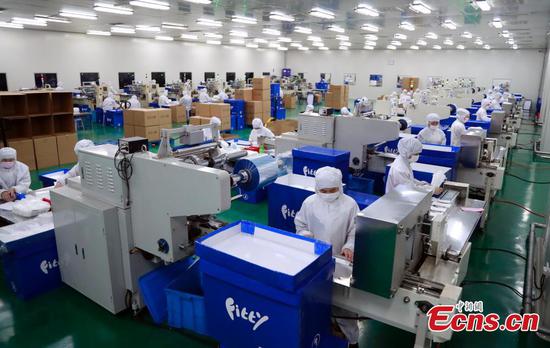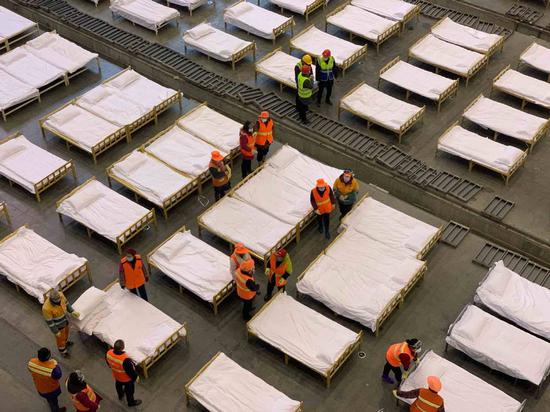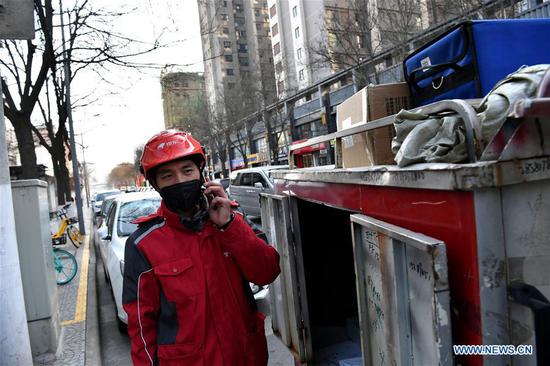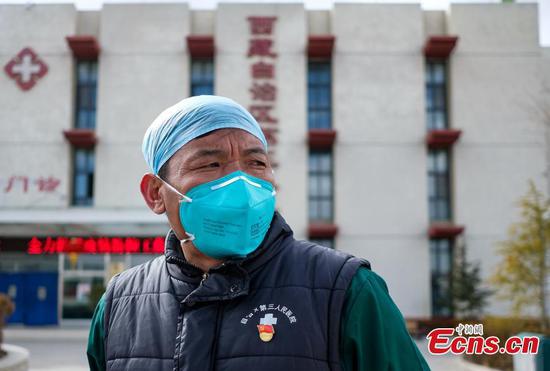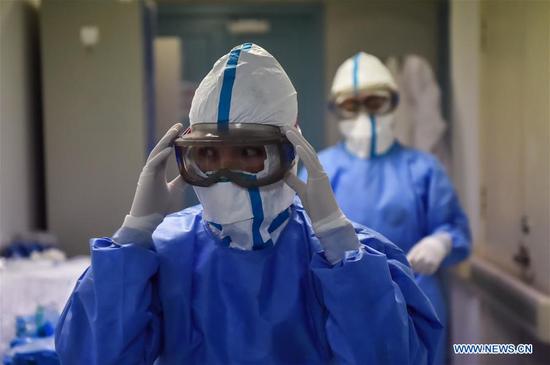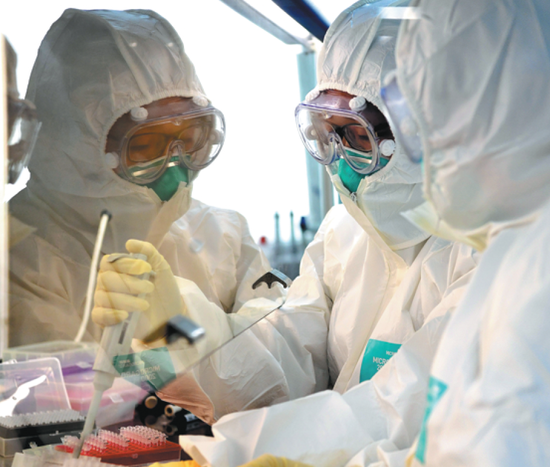
Lab technicians analyze novel coronavirus test kit samples to identify new cases at a disease prevention and control center in Nanyang, Henan province, on Tuesday. (HAO YUAN / XINHUA )
The number of new suspected cases in China of the novel coronavirus has dropped for two consecutive days, and fell to under 4,000 on Tuesday, new figures show.
Increased testing that either cleared suspected people of contracting the virus or confirmed diagnoses has resulted in the slower growth rate, health experts said.
However, two newborns, one just 30-hours-old, were confirmed to have the virus on Wednesday in Wuhan, Hubei province — the epicenter of the outbreak — suggesting possible mother-to-fetus infections.
The National Health Commission reported 3,971 new suspected cases on the Chinese mainland on Tuesday, compared with 5,072 on Monday and 5,173 on Sunday. The total number of suspected cases across the country stood at 23,260 as of the end of Tuesday.
Hubei, which is receiving assistance from other regions, saw the number of new suspected cases also decrease by 1,225 on Tuesday, the commission said.
"Improved testing capability has allowed infected patients to receive better and more timely treatment, and people who are ruled out are able to return to normal lives," Song Shuli, the commission's spokeswoman, said on Wednesday.
"Such an encouraging sign has been observed in Hubei as well as the entire country," Song added.
She was speaking at a news conference held by the Joint Prevention and Control Mechanism of the State Council, an intergovernmental system that consolidates disease prevention efforts from different government bodies.
Li Xingwang, head of Beijing Ditan Hospital's infectious disease center, said the number of confirmed cases has also expanded as people suspected of having the virus can now access test kits more quickly.
"Testing for the virus in Hubei has accelerated rapidly," he said. "The numbers compute — the reduction in suspected cases is accompanied by an increases in confirmed cases as well as those in severe condition."
The number of confirmed cases on the Chinese mainland rose by 3,887 on Tuesday to 24,324, according to the National Health Commission. The mainland death toll went up by 65 to 490 as of late Tuesday night.
Although concerted nationwide efforts have appeared to ease the crisis in Hubei, it is still premature to predict the outbreak's future development, experts have said.
The two confirmed infections of newborns at Wuhan Children's Hospital has caused experts to worry about the possibility of mother-to-fetus infection. Both babies are in stable condition, the hospital said.
Wang Chen, president of the Chinese Academy of Medical Sciences, told Xinhua News Agency on Tuesday that the spread of the novel coronavirus is still severe and unclear, and "should never be underestimated".
"We don't have evidence to predict when the epidemic will reach its peak or turning point. The most urgent task at hand is to halt the disease's spread and to swiftly identify and gather mild cases into designated quarantine facilities to prevent wider transmission," Wang said.
Wuhan, Hubei's provincial capital, is under intense pressure to handle a ballooning number of patients. The city has been working around the clock to set up 11 temporary hospitals by refitting warehouses, convention centers, gymnasiums and schools.
These temporary institutions can together provide more than 10,000 hospital beds for patients with mild symptoms, Xinhua said.
Wang Ying, a supervisor of a temporary hospital set up in a gymnasium, told Beijing News that they have divided the facility into grids and passages and require the beds to be situated 1.1 meters apart in an attempt to reduce the risk of cross-infection. "But the risk is very low, as all patients admitted into these hospitals are mild infection cases," Wang said.
The National Health Commission has released an updated version of diagnosis and treatment guidelines on Wednesday, highlighting more rigorous screening and quarantine measures to control spread of the contagion.










